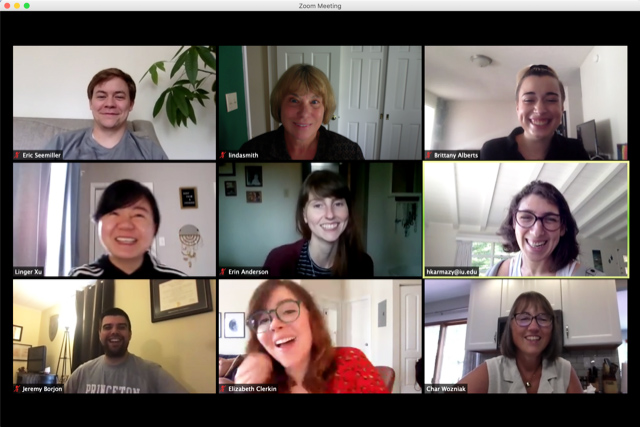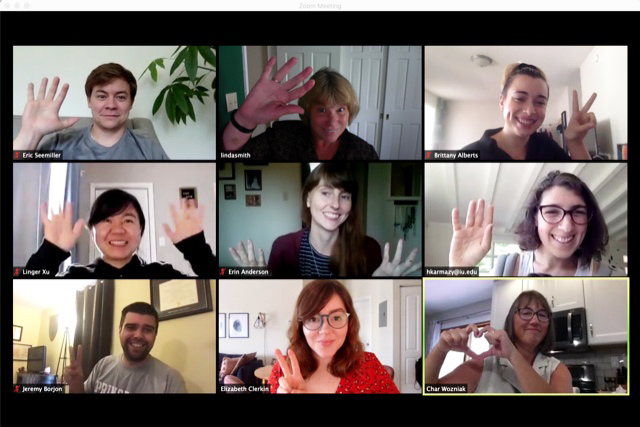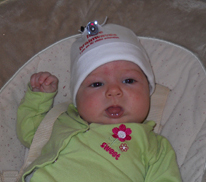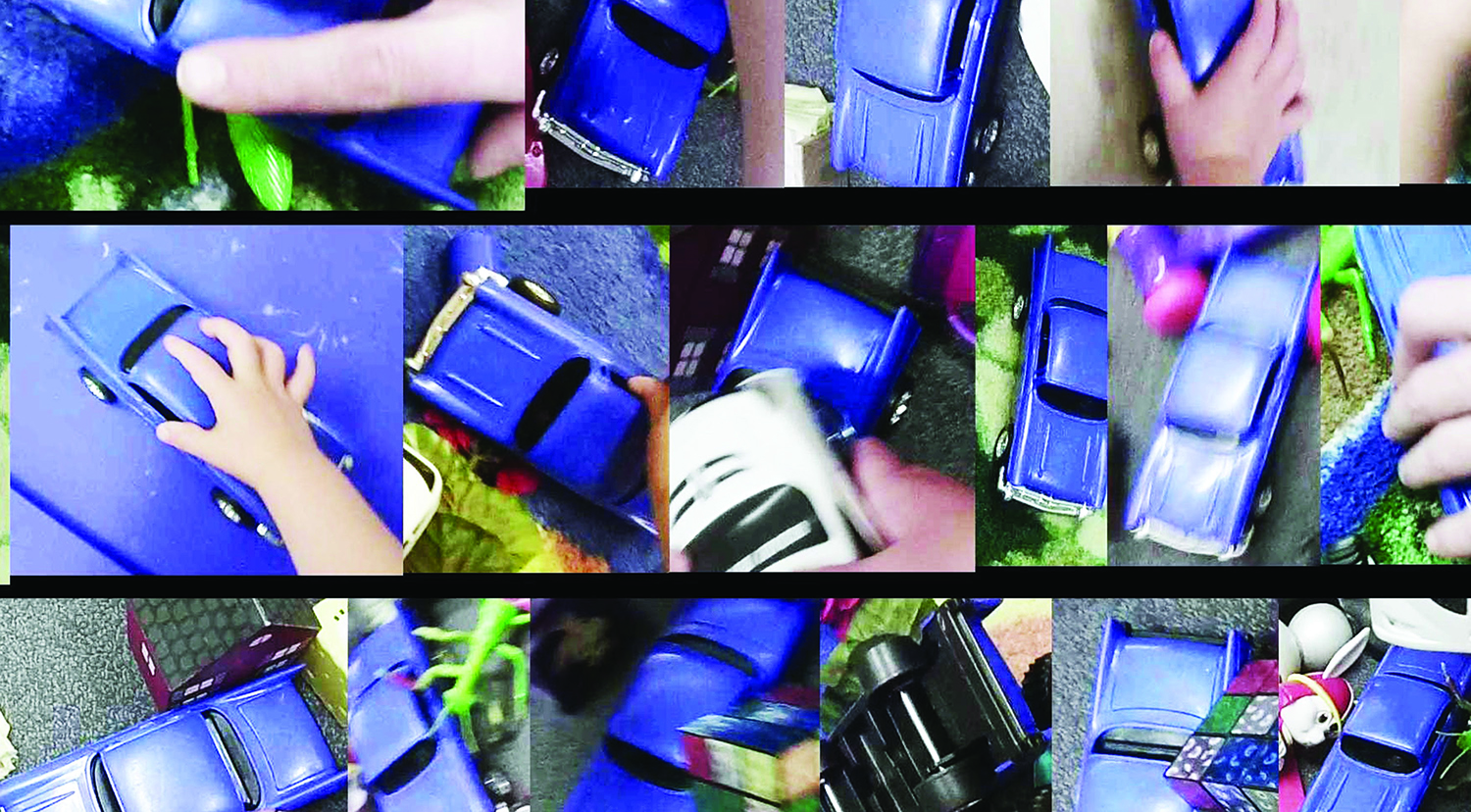Child Scientists Needed, Birth - 10 years old
Thank you for visiting our website!
Every baby and child is a valued contributor to our work. We invite you to learn more about your child by participating in studies of every aspect of language development.
Contact us to participate!
cogdev@indiana.edu.
Back to the top
Take a Tour of our Lab
A typical lab visit
 What one parent says: "I never worry if he will do the right or wrong thing. I personally think it's a good thing for us to do as they look at the development of children. This kind of research is helping them figure out how to deal with development issues."
What one parent says: "I never worry if he will do the right or wrong thing. I personally think it's a good thing for us to do as they look at the development of children. This kind of research is helping them figure out how to deal with development issues."
What can we expect?: Typically, a researcher will first send an email or send a letter to your home with an invitation to participate. Most are one-time visits that last anywhere from 20-60 minutes. Occasionally researchers need participants in a longitudinal study involving multiple visits. Of course it is totally up to you and your schedule if you can come in. Researchers are sensitive to your needs and appointments can be made during the day, evening or weekend. Parking is free and babysitters are always available to watch any siblings you need to bring.
Back to the top
Meet the researchers


Eric Seemiller
Dr. Linda Smith
Brittany Alberts
Linger Xu
Erin Anderson
Hadar Karmazyn
Jeremy Borjon
Elizabeth Clerkin
Char Wozniak
Lab Manager:
The Lab Manager coordinates and keeps track of everything and everybody. Any questions? Contact the lab manager.
Postdoctoral Scientists:
The lab also includes post-doctoral scientists who have received their Ph.D. and continue their research.
Graduate Students:
Also in the lab are graduate students who have a specific research interest related to the development of early language and seek a Ph.D. degree.
Honor Students and Undergraduates:
We also have a team of wonderful undergraduates who are learning to conduct research, including Honor Students, who are advanced and focus on their own project. All undergraduates are closely supervised.
Back to the top
Some of our on-going studies

 What is your research about?
What is your research about?
Our research: It is about perception, action, emotion, play and learning categories. We are funded by 3 federal grants to understand how all your child's everyday activities make them the amazing learners that they are and how to help children who are having difficulties in these areas. Because much of our research concerns children growing and learning in different cultures, we compare how children learn different languages. When your child comes into the lab, they are often doing tasks that children in Japan, Mexico or India will also do!
Back to the top
MAP - Lab Location and Parking (click here)
How do we get to the Cognitive Development Lab?
Address: Psychological and Brain Sciences, 1101 E. Tenth St., Bloomington, IN 47405
Phone Number: 812-855-8256, Room Number: A140
11th and Fee Parking Garage: There are 6 FREE spaces for parents to park. As you enter the garage, keep straight, staying on the first floor, then turn left toward the elevator EXIT with the blue emergency light. On the right-hand side, next to the windows there are parking spaces marked "RESERVED - Psychology Research Participants Only". Your researcher will greet you there with a parking pass for your vehicle. You will also be given a signed parking pass to give to the parking attendant as you exit the parking garage.
Back to the top
General Resources
CDC:Child Development Positive Parenting Tips
Infants (0-1 year of age)
Toddlers (1-2 years of age)
Toddlers (2-3 years of age)
Preschoolers (3-5 years of age)
Developmental Milestones
Zero to Three: National Center for Infants, Toddlers and Families
Early Development Tips and Tools
Early Language and Literacy
Children's Health
Communication and your 1 to 2 year old
Communication and our 2 to 3 year old
PBS
Child Development Tracker (Language)
Back to the top






 What is your research about?
What is your research about?